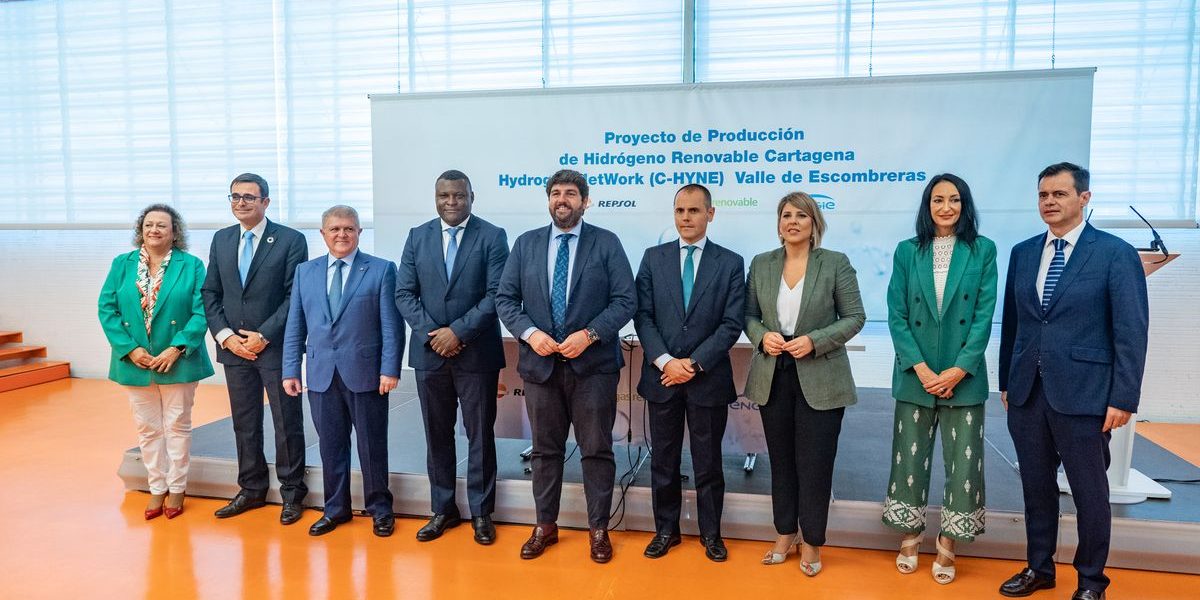The companies Repsol, Enagás Renovable and Engie signed an agreement in Cartagena to build the first regional renewable hydrogen plant, which will be located in the Valle de Escombreras. The agreement lays the foundations for the project, which will continue to advance in the electrolyzer project, which will initially have a capacity of 100 MW in the first phase of the plant’s development.
The new renewable hydrogen plant, which will be located in the vicinity of the Repsol industrial complex in Cartagena, will involve an investment of around 215 million euros and the generation of around 1,100 jobs in the different phases of construction and start-up, planned for 2025. Next year, progress will be made in the detailed engineering and in the administrative processing of the project, to start construction in 2024.
According to the Mayor of Cartagena Noelia Arroyo, the project will focus on “the technological leap from fossil fuels to renewables in industry and transport, sector with high energy demand, and will have Cartagena as protagonist.”
The Cartagena electrolyzer will help achieve the objective of reaching 552 MW of installed capacity in 2025 and 1.9 GW in 2030, almost 50% of what has been committed by the Spanish Government and in line with the European decarbonization strategy to reduce the dependence on fossil fuels. Specifically, the construction of the plant will prevent the emission of more than 167,000 tons of CO2 per year into the atmosphere.
Likewise, the production of this renewable hydrogen will mean a reduction in the consumption of natural gas used by industry, which also contributes to achieving the objective set by the European Commission within the RePower EU strategy to reduce external dependence on fossil fuels. .
During his speech, the President of the Autonomous Community of the Region of Murcia Fernando López Miras said that it is “an ambitious challenge, but one that is within our reach” and insisted that with it, the Region of Murcia and Cartagena will continue working to “lead the development of green hydrogen in Spain and Europe.”
Repsol’s Director of Renewable Fuels and Circular Economy Tomás Malango highlighted the importance of the project, since it has been recognized as “of strategic and community interest” by the European Commission. “It is one of the five initiatives in Spain and of the 17 in Europe that have been recognized as being of special interest for the development of the hydrogen economy,” he commented.
For his part, the CEO of Enagás Renovable, Antón Martínez, pointed out that the plant will be located in a “strategic enclave, near the Port of Cartagena, where we believe that renewable hydrogen will play a fundamental role in the decarbonization of maritime transport and in other sectors that are difficult to electrify, such as heavy transport or heat-intensive industry.”
Source: Cartagena City Council







